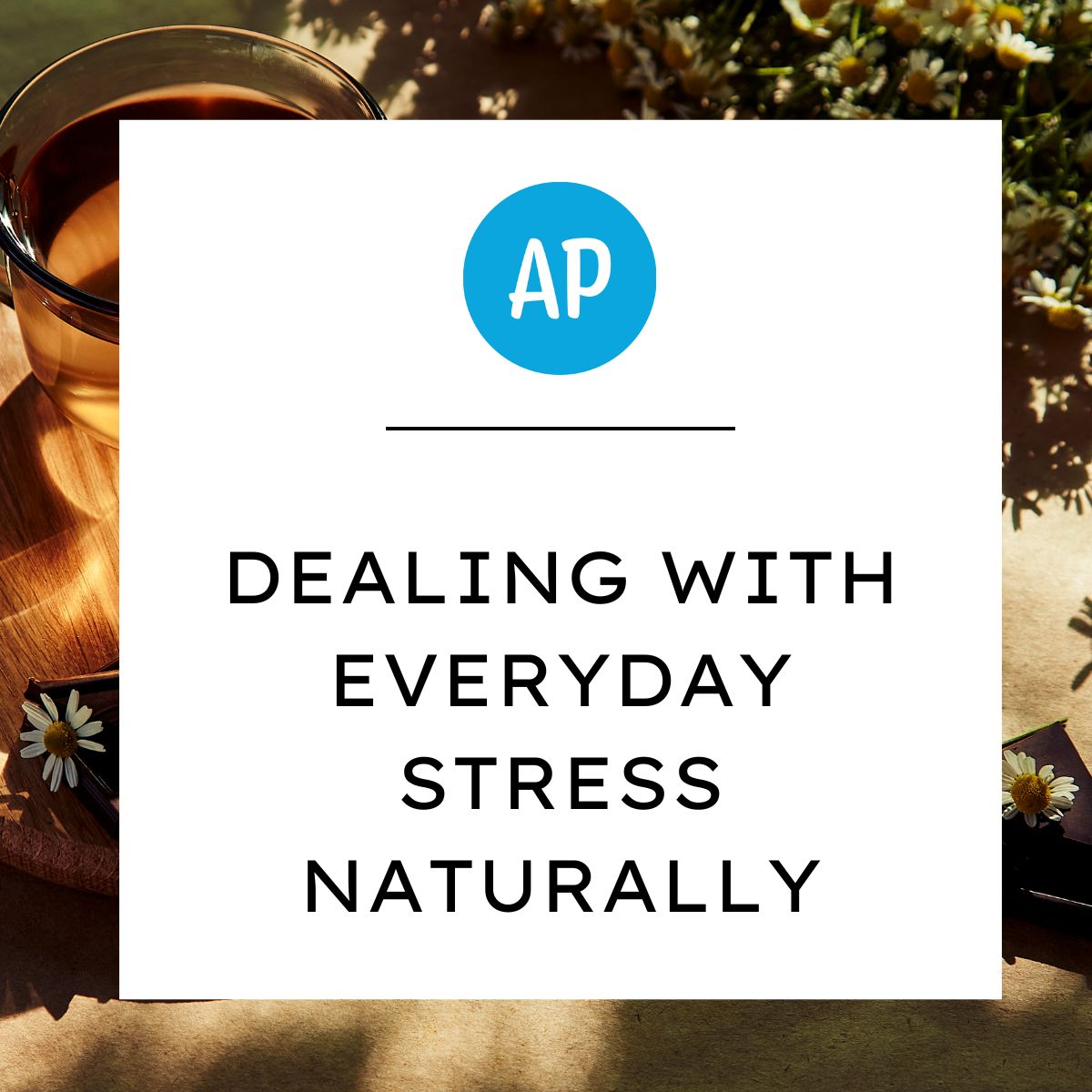
By: Madeleine Pearce
With piles of work, school in full swing, and the holidays quickly approaching, life might seem more stressful every day. It can be challenging to keep up with your job while still making sure kids at home focus on their classes. Even getting out of the house can be daunting; with holiday shopping just beginning, eager customers are crowding every store in hopes of finding the perfect gift.
Balancing your work life, taking time for the family, and preparing for the holidays ahead can be overwhelming, but taking time for yourself to relax and de-stress is important. With a healthy and relaxed mindset, getting everything done can be much easier than you expect!
Most people have a different method to help us relax when we’re feeling particularly stressed. Some people find it easier to take a mental break and go for a walk, while others might prefer to slow down and read a book. No matter how you choose to help yourself calm down when life seems overwhelming, finding a simple way to de-stress is a healthy practice that can help you stay positive while accomplishing all your work.
Looking for a way to get rid of stress in a natural way? Here are just a few methods to help relax when dealing with everyday stress.
Exercising can be naturally effective
Feeling frustrated, angry, or simply overwhelmed? Spending some time exercising can help. Whether you prefer a quick run, lifting weights, or maybe just a walk around the neighborhood, exercising can help clear your mind while you focus more on your body and movements. Even on the busiest days, waking up an extra 15 minutes early could give you the chance to go for a short run or even have a quick yoga session to get your body moving. Getting exercise done in the morning could make you feel more confident and productive throughout the rest of the day, no matter what kind of workout you choose to do. Not much of a morning person? Squeeze in a workout during a lunch break or before dinner.
While working out can help get rid of your stress quickly, it also helps in the long run. When you exercise, you might feel better about your body and increase your confidence. Feeling confident can help you perform better throughout your day, meaning even a little bit of exercise can go a long way. Exercising affects your hormones, too. When you work out, your body starts to lower its amount of stress hormones. Even though taking the first steps to making a workout routine might be difficult, the results might be worth it!
Cut back on caffeine
Reducing the amount of caffeine you have in a day might be easier said than done; many people rely on their morning cup of coffee and afternoon pick-me-up to get through the day, and dropping those habits might make you feel less energized. Not a fan of coffee? Caffeine is found in a number of other foods and drinks designed to keep you fueled all day long. Consider energy drinks; they can have anywhere from 150 mg of caffeine to 300 mg. Chocolate and some teas also have caffeine, meaning it’s possible you are consuming more caffeine than you realize.
While caffeine is a great way to energize, you might notice drinking too much can make you feel anxious. Feeling anxious from caffeine can increase your stress levels, meaning cutting back can help you feel better. If you still look forward to your morning coffee or tea, opt for decaffeinated drinks. Still need that extra boost of energy? Order a half-caffeinated coffee drink instead; you can get the energy you need without the unwanted stress and anxiety. There is no need to cut out caffeine completely; instead, learn your limits and keep track of your caffeine intake.
Keep a journal to manage stress
Sometimes, organization and reflection can help people manage stress successfully. Keeping a journal where you can write down and process your ideas might help you realize the causes of your stress, and might even let you find a solution. With journaling, you can fully evaluate your problem or simply push yourself to relax and be more positive. What comes to mind when you think of journaling? Maybe it’s paragraphs about your daily life, or maybe it’s more of a space to express your emotions. While journaling to manage stress can be either of those, you don’t have to limit yourself to the more traditional journaling method. If you feel comfortable, try exploring these other ways to journal:
- Design a creative calendar: if keeping organized helps keep you relaxed, then try using a journal to make a calendar with colorful spaces on the side for events and activities. You can use pages to make outlines for goals, ideas, or maybe just to elaborate on something you’re looking forward to doing.
- Make lists: If you need a quick and easy way to practice positivity, set aside space in your journal to make lists. To keep a healthy mindset, try making bullet points for things you’re grateful for, your favorite places to visit, best memories, or tasty comfort foods. Having trouble getting started? Challenge yourself to list ten points for each list. When you finish, save your work so you can go back and look at it later whenever you feel the need.
- Prioritization is key: If you’re worried journaling might take up too much time, aim for one sentence a day and make that sentence count. In that one sentence, write down a goal for the day or something you’re grateful to have in your life. No matter what you choose to write down, try to make it positive. Soon, you’ll have dozens of sentences highlighting some of the most important parts of your life. You can always look back and see the progress you’ve made!
Give teas or candles a try
Teas and candles can help you manage your stress by offering aromatherapy. Aromatherapy is exactly what it sounds like: the use of different scents and essential oils to help care for your body. Using different scents to treat your stress can work in several ways, depending on your personal preferences. Herbal teas can be soothing and are known to help with stress, while candles can help create a relaxing atmosphere. Essential oils and diffusers have recently grown in popularity, especially because the oils are known to help relieve stress and even help you go to sleep. Essential oils can also be found in candles, and some can be bought and used in teas. They are made with natural ingredients so you can feel good about what you put in your body to feel better! Not sure which essential oils to start with? Here are just a few and their uses:
- Lavender: A lavender oil can help with stress and anxiety with it’s soothing and calming scent. Lavender is typically found in candles or essential oils designed to help you relax.
- Chamomile: Usually in the form of a herbal tea or essential oil, some studies show chamomile helps offer relief from stress. Bonus points: Chamomile is also great for treating cold symptoms when you’re feeling under the weather!
- Lemon: Using lemon-scented oils, candles, or teas can help you relax and even improve your mood. While lemon essential oils can be effective, you can also simply add a teaspoon of fresh-squeezed pure lemon juice from home to tea for a similar result.
Remember, not all essential oils are made the same. Natural oils are made by steaming or pressing plants, but others can contain unnecessary and unnatural additives. Always read the directions on the package before using them!
Set up a healthy sleep schedule
Everyone knows the groggy feeling of getting up in the morning without enough sleep. It can make the rest of the day feel long and difficult, especially when it comes to staying on top of your daily tasks or working productively. That’s why having a steady sleep schedule is important to help reduce everyday stress and anxiety. When you wake up feeling refreshed after a healthy amount of sleep, you might find it easier to keep focused and not feel nearly as stressed. Losing sleep can make you feel more anxious the next morning, so getting the recommended 7 to 9 hours every night can change your entire day for the better.
While it can be difficult to calculate how much sleep you get every night, creating a sleep schedule that works around your daily life and sticking to it can make a big difference. When you first start, try to be as consistent as possible with your new schedule. If you’re making a big adjustment in your sleeping routine, make little adjustments until you reach your goal times. Here’s another tip: Skip naps during the day. If you nap throughout the day, you might throw off your sleep schedule because you may not feel as tired when it’s time to settle down for the night. Having trouble falling asleep? Relax before you get in bed with a cup of tea or reading. In the morning, do your best not to hit the snooze button to keep your routine as normal as possible!
Take a deep breath (or a few)
When it comes to taking care of stress, many people have heard the phrase “Just take a deep breath.” While it might be difficult to do in the moment when your mind is racing, the advice actually is helpful. Taking a moment to breathe deeply can is a quick and easy way to get rid of everyday stress and anxiety in your life. Breathing deeply helps your body relax and gives yourself time to focus by mimicking what you do when you are normally calm. You can make your body think it’s already relaxed, so you can skip the fight-or-flight reactions with stress and maybe even calm yourself down completely.
Did you know there are several different breathing techniques you can use to help calm yourself down? While they all will help you calm down, there are plenty of ways you can learn to breathe deeply to help conquer your stress. Each only takes a few minutes so you can take the time to master them no matter how busy your day might be. Some require counting as you breathe in and out while others encourage you to focus on the movement of your chest. No matter what you prefer, practicing deep breathing can help you get rid of stress at any time of day. If you know you have a busy day ahead, try breathing deeply for a few minutes in the morning to focus and calm yourself down. It might help you take on the rest of the day with confidence and a good mindset as you prepare for the tasks ahead!
Everyone gets stressed, but it’s up to you to know how to deal with it
When it comes to stress, everyone gets it. Whether with work, school, or even relationships, stress can get in the way of our wellbeing. Managing stress naturally is easy and can be effective. Next time you know you have a stressful day ahead, give one of these strategies a try!
